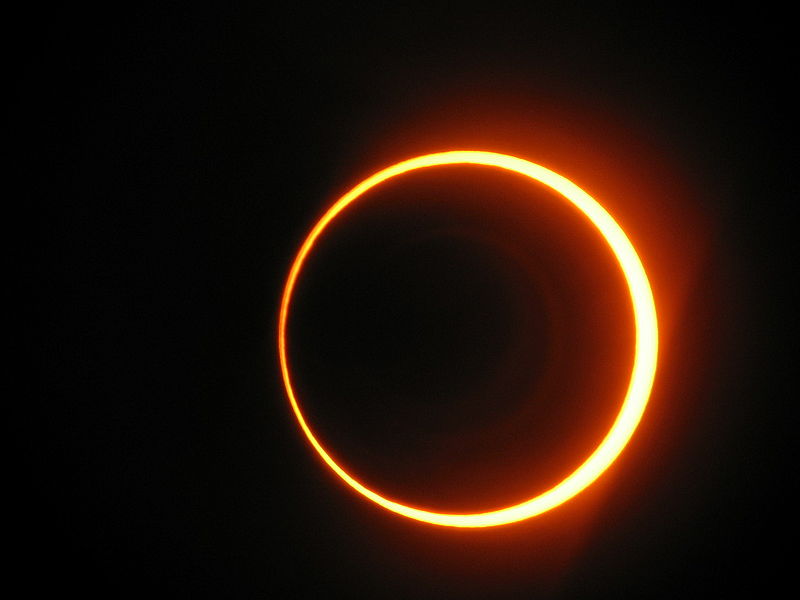We're open daily this holiday! View holiday hours
Science News
Annular Solar Eclipse
May 18, 2012

Sunday evening, May 20, will offer a spectacular sight to sky-viewers in the western US—an annular solar eclipse.
Solar eclipses occur when the Moon passes directly between the Sun and Earth. In contrast to total solar eclipses, when the disk of the Moon completely covers the disk of the Sun, as seen from Earth, annular solar eclipses occur when the Moon lies slightly farther away, appearing slightly smaller than the Sun. As a result, the Moon doesn’t completely block the Sun and instead leaves a bright ring of the solar disk visible around it—like a dime laid on top of a penny. This ring is called an “annulus,” and it will be bright enough to wash the Sun’s outer atmosphere, or corona, from view.
While solar eclipses occur about every six months, it’s a rare treat to see it from your own backyard—you have to be in the right place, at the right time. The next time an eclipse will cast its shadow on the western US is a total solar eclipse on August 21, 2017.
Sunday’s eclipse will begin in Asia around 2:19 p.m. our time. You can watch its progress live online.
In the western United States, it will follow a narrow line from Eureka and Redding through Reno, Carson City, Albuquerque, and Lubbock. Observers will see the silhouette of the New Moon slowly passing directly in front of the Sun’s disk.
While we won’t see the entire event here in the San Francisco Bay Area, we’ll still get a great view! For us, the eclipse begins at 5:16 p.m. and ends at 7:40 p.m., with maximum eclipse occurring at 6:33 p.m., when the Moon will cover 89% of the Sun’s diameter, turning the Sun into a thin, graceful crescent. The change in illumination won’t plunge us into darkness, but with most of the Sun’s disk blocked from view, people should notice something odd or different about the quality of daylight.
Looking directly at the Sun is never safe, and it is especially important with all the excitement this weekend that everyone remains cautious. We’ve produced a fun, informative video on how to view the eclipse safely.
If you’re in the area and we’re fog-free, join us in front of the Academy Sunday evening to view this spectacular event!
Bing Quock and Alyssa Keimach contributed to this article.
Image: sancho_panza/Wikipedia